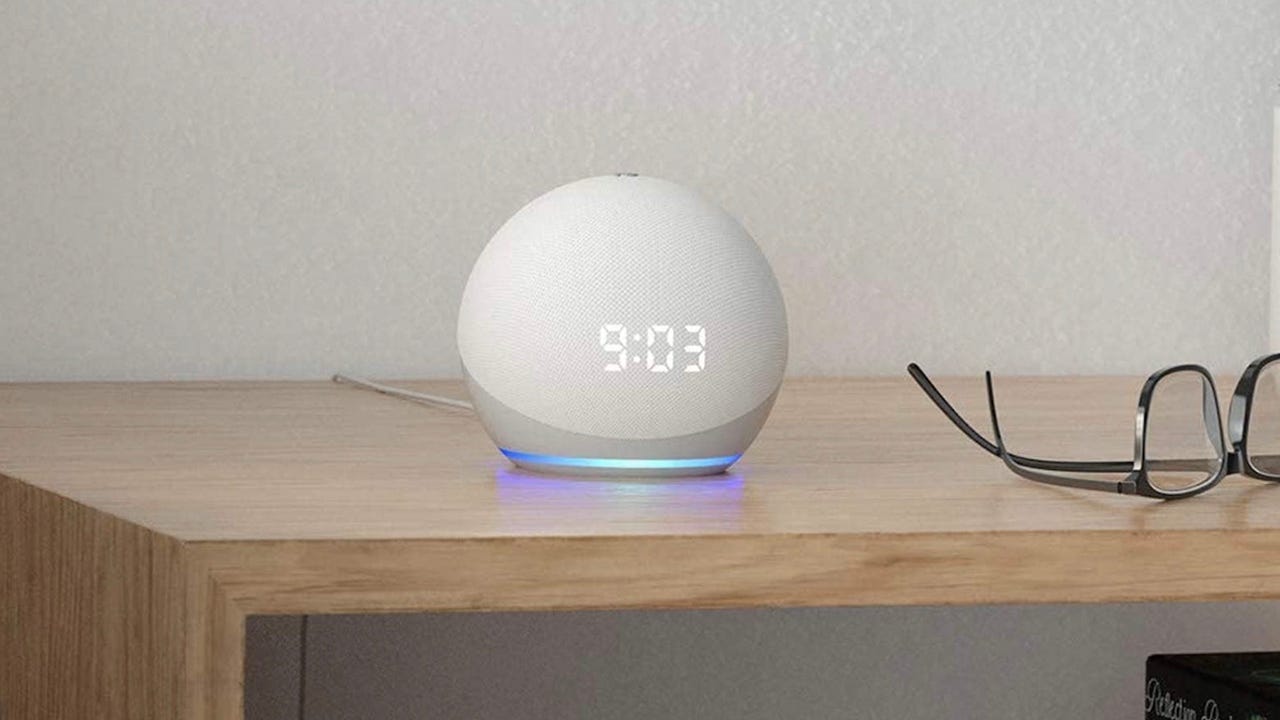































 Image: Amazon
Image: Amazon Imagine you come home from work, and there's loud, obnoxious music blaring from the speakers in your living room. You may know which family member turned it on, but you may not know which voice assistant they used to do so -- was it Amazon's Alexa, Sonos Voice Control or Hey Spotify?
This is a problem that's likely to become more common as all kinds of companies embrace the concept of "ambient computing" -- computing capabilities that move seamlessly between every facet of your life. As you move from your smart home to your smart car, with your smart ear buds in hand, different brands are likely to have their own AI assistants ready to help you.
"We're really starting to see this vision for Alexa and ambient intelligence become a reality," Aaron Rubenson, Amazon's VP of Alexa Voice Service & Alexa Skills, said to ZDNet. "I'd argue that every brand needs to have an ambient strategy at this point."
SEE: The 4 best smart hubs: Get smart about home control
Amazon is fully aware, though, that it could get confusing to have so many voice assistants at your disposal. At itsAlexa Live developer event on Wednesday, the company said it's introducing support for what it calls Universal Device Commands, which cover foundational controls for a device -- such as adjusting the volume, turning off a timer that's going off, or stopping an audio stream.
So in the scenario above, if your teenager turned on their atrocious music with Alexa, you should still be able to say to your Sonos speakers, "Hey Sonos, stop," and the music should stop.
"There are certain things that we believe any voice assistant that's on a device should be able to control," Rubenson said.
The introduction of Universal Device Commands builds on the collaborative approach to ambient computing that Amazon has taken in recent years. In 2019, the company launched the Voice Interoperability Initiative to ensure that users can interact with more than one voice assistant on a single device.
The initiative launched with the cooperation of 35 companies, and it now includesmore than 90 . Notably, Apple, Google and Samsung are not part of the initiative. When asked whether these three major companies would support the proposed Universal Device Commands, Rubenson said Amazon couldn't yet share specifics pertaining to compatible voice services outside of Alexa. More information about the implementation of Universal Device Commands should be available over the next year.
Ambient computing "is a big vision, and we've known from the beginning that we can't achieve it by ourselves," Rubenson said. "Developers and device makers have always been central to this vision for ambient computing technology and to the growth of Alexa."
SEE: What is cloud computing? Everything you need to know about the cloud explained
The stats bear that out: more than 20% of all Alexa interactions involve customers interacting with some third-party skill, Rubenson said. That's tens of billions of interactions overall. Similarly, in the smart home arena, customers have now connected more than 300 million smart home devices to Alexa.
There are now more than one million developers, device makers and brands that are building with Alexa in aggregate, across a broad spectrum of industries, including TV makers, automakers and more. Even brands like Disney are integrating Alexa into their experiences and services.
Meanwhile, during Wednesday's Alexa Live Event, Amazon announced a series of new and enhanced developer kits that should keep Alexa's user momentum alive:
Amazon also announced various ways it's helping developers promote their skills and grow their businesses:
 Tags quentes :
Inteligência artificial
Inovação
Tags quentes :
Inteligência artificial
Inovação